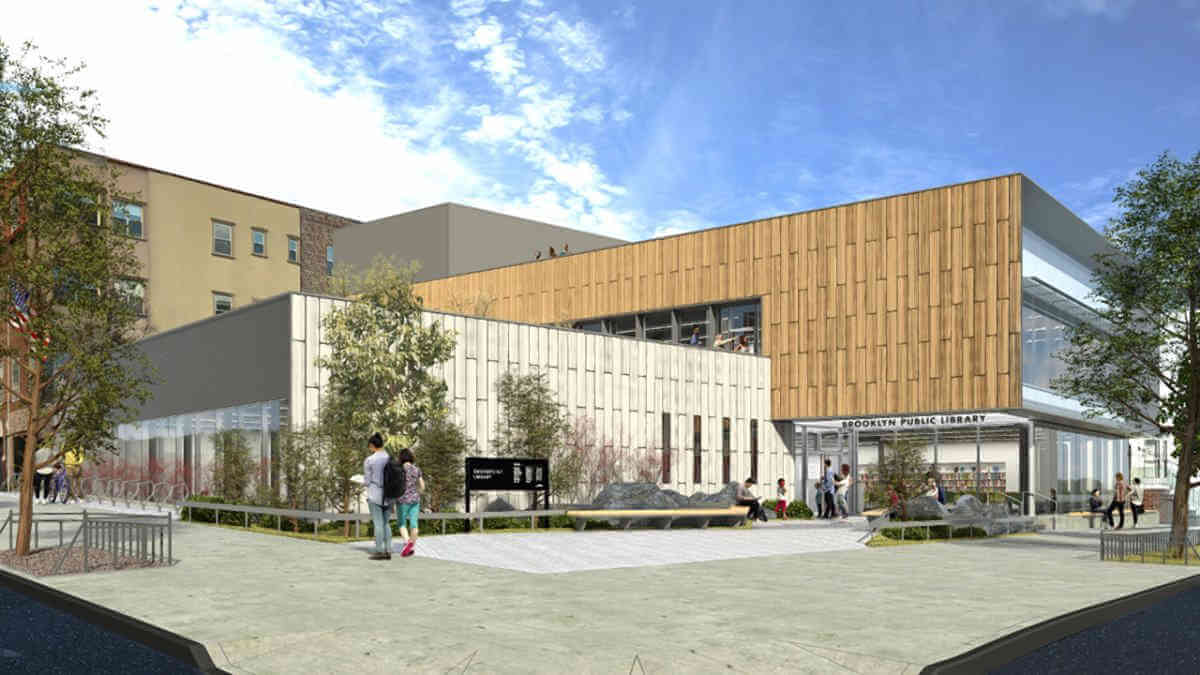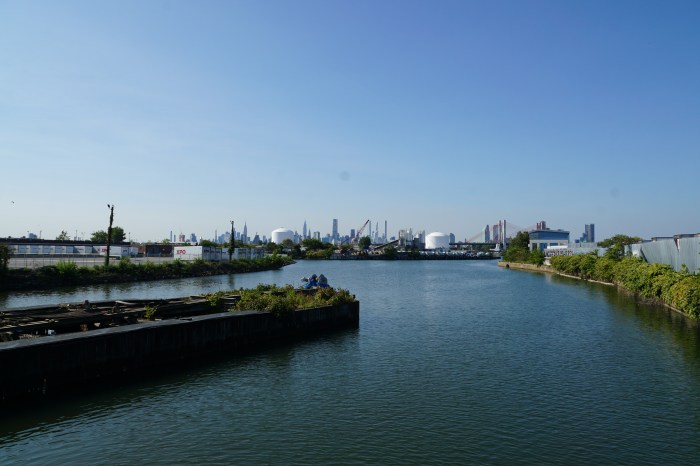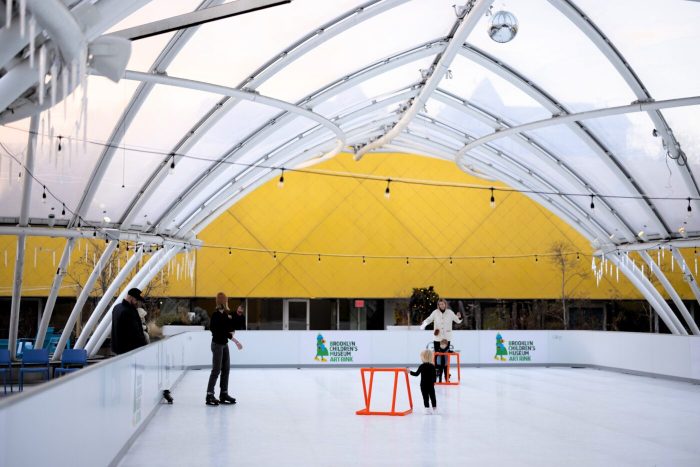The construction timeline for the Brooklyn Public Library’s multi-million-dollar overhaul of its Greenpoint branch is in flux as costs climb by almost $2 million and building slows amid the novel coronavirus, according to library officials.
“Things are so uncertain, it is really hard to say,” said BPL Spokeswoman Fritzi Bodenheimer. “The timeline has been impacted by the pandemic.”
The fresh set of stacks at the corner Norman Avenue and Leonard Street was supposed to wrap construction in early 2020, but the end date for the almost three-year revamp is now unclear due to COVID-19 construction restrictions, Bodenheimer said.
Book bigwigs halted work on the project in late March but resumed on May 4 after receiving an exemption to Governor Andrew Cuomo’s state-wide ban on non-essential construction.
The building’s interior is now mostly finished, except for some electrical equipment, and builders are currently working on the structure’s facade, ground-level plaza, roof gardens, and signage — with safety measures in place to guard the workers against the contagion, according to Bodenheimer.
Costs for the scheme have risen from $20.8 million to $22.6, an increase of $1.8 million, but the spokeswoman did not immediately clarify the reasons for the higher bill.
Some $5 million of the original price came from a $19.5-million fine that oil-and-gas giant Exxon-Mobil paid the community in 2014, seven years after federal officials discovered that the firm spilled 30 million gallons of oil into Newtown Creek since the 1950s. The remainder of the funding is a mix of city and state capital funding and library capital funding.
BPL plans for the new library — designed by Dumbo-based architects Marble Fairbanks – to become a hub for environmental research and education as well as offer a space for community meetings, which is sorely lacking in the area, according to one local volunteer watchdog of the project.
“It’s for a community that’s really been dying for a space like this,” said Dewey Thompson a member of the Greenpoint Library Community Advisory Committee. “All of that data [about the local environment] now has a place to go to be shared with the public, and in reverse the public has a place to go to learn about the environment.”
The book lenders tore down the 1970s-era library in late 2017 — which itself replaced one of the city’s first Carnegie libraries built in 1906 — with completion originally slated for late 2018.
But those plans were set back several times, including when workers uncovered asbestos in the remains of the old Carnegie library in October 2018, and again in January 2019, when city inspectors slapped builders with a full stop work order for not properly securing the site.






















